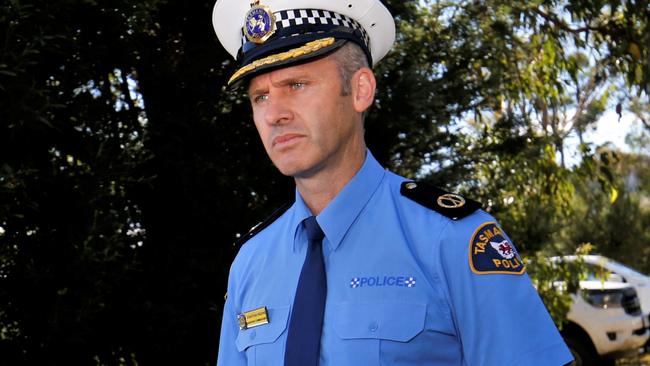Drug driving Tasmania: Court disagrees with new police practice
Police have been attempting to impose a new levy in court, but four months after the practice was first questioned, they still can’t say if the amount sought is “reasonable”.
Police & Courts
Don't miss out on the headlines from Police & Courts. Followed categories will be added to My News.
A Tasmanian magistrate says she disapproves of a practice recently introduced in her court wherein police seek to have convicted drug drivers pay for their own oral fluid analysis, which would increase the total penalty for first-time offenders to more than $600.
Tasmania Police Assistant Commission Jonathan Higgins denied the practice was unfair, telling the Mercury it’s not uncommon for police to seek “reasonable costs” from offenders in a variety of instances.
The commissioner said the $147 being sought by police in successful drug driving prosecutions was to cover “Forensic Science Services Tasmania (FSST) staff, infrastructure, instruments, and consumable costs per case”.
While police have had the ability to recoup the cost of oral fluid analysis since a 2018 amendment to the Road Safety (Alcohol and Drugs) Act 1970, prosecutors in Launceston have only begun making these applications consistently in the past fortnight.

Launceston Magistrate Sharon Cure, who sentenced three drug drivers on Monday, told the court during one of the matters she disapproved of the practice.
“Someone charged with an offence shouldn’t have to pay for their own prosecution,” she said.
Defence lawyer Lucy Flanagan, representing one of the drug drivers on Monday, also told the court she disagreed with the approach, as defendants had no choice but to submit to the test or else face an additional charge.
Ms Cure’s practice the past fortnight has been to grant the applications but adjourn their terms sine die (i.e. on a date to be set) until police can satisfy the court $147 is a reasonable amount to levy.
“There needs to be more information as to how the costs are arrived at,” Ms Cure said.
“It would be easy to prove.”
Ms Cure’s comments are in line with a January decision by Devonport Magistrate Duncan Fairley, in the case of Tasmania Police v Kelly Jane Suitters.
In that case, police told Mr Fairley they had been advised by FSST “the costs are calculated on a proportional basis inclusive of salaries, consumables and overheads.”

However, Mr Fairley said the word of FSST was not sufficient to enable courts to “assess” whether such costs are “reasonable”, as required under the act.
With a fine of $346 the minimum amount for first-time drug driving offenders, and court costs and levies already totalling $107.45 for the offence, the imposition of an additional $147 would drive the total penalty to more than $600, in addition to three months’ disqualification.
Assistant Commissioner Higgins stressed that drink and drug driving was “high-risk behaviour” which contributed to 25 per cent of deaths on Tasmanian roads last year.
“It is relatively common for offenders found guilty of crimes and offences to pay court costs, which can include witness summons costs, analysis, et cetera,” he said.
“This is at the court’s discretion.”
The commissioner declined to say when or how police planned to satisfy the courts $147 was a reasonable cost to impose on defendants.





